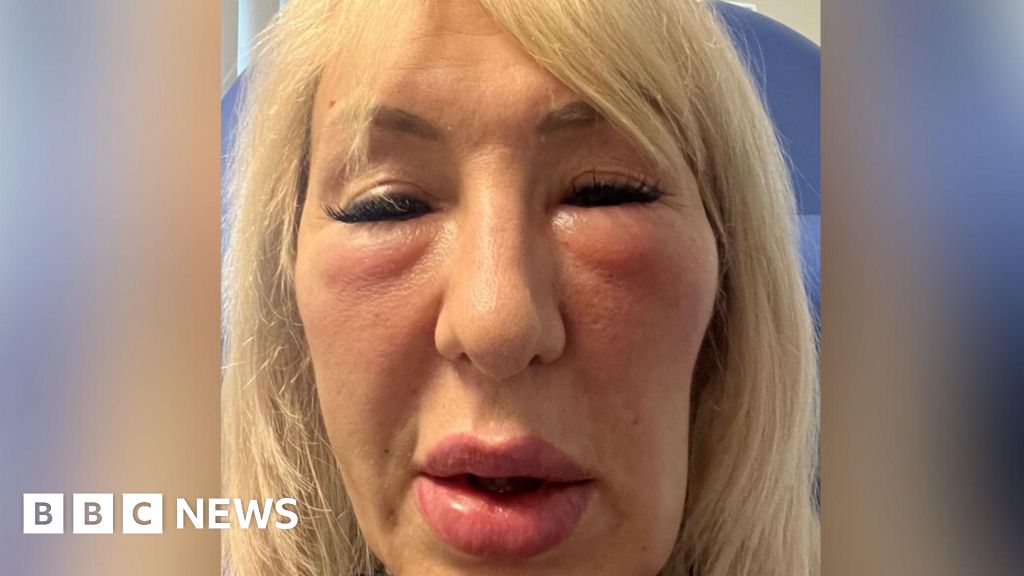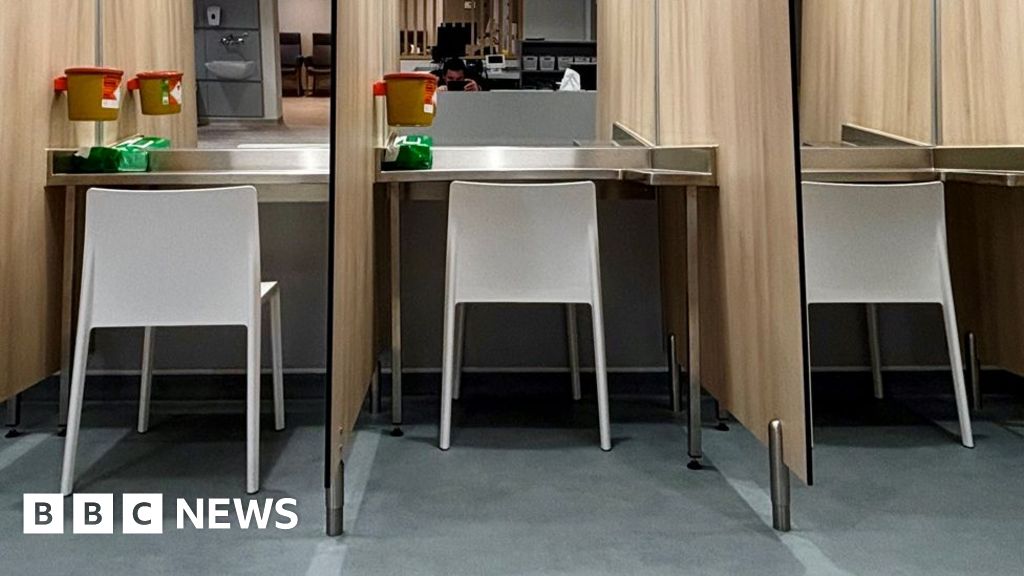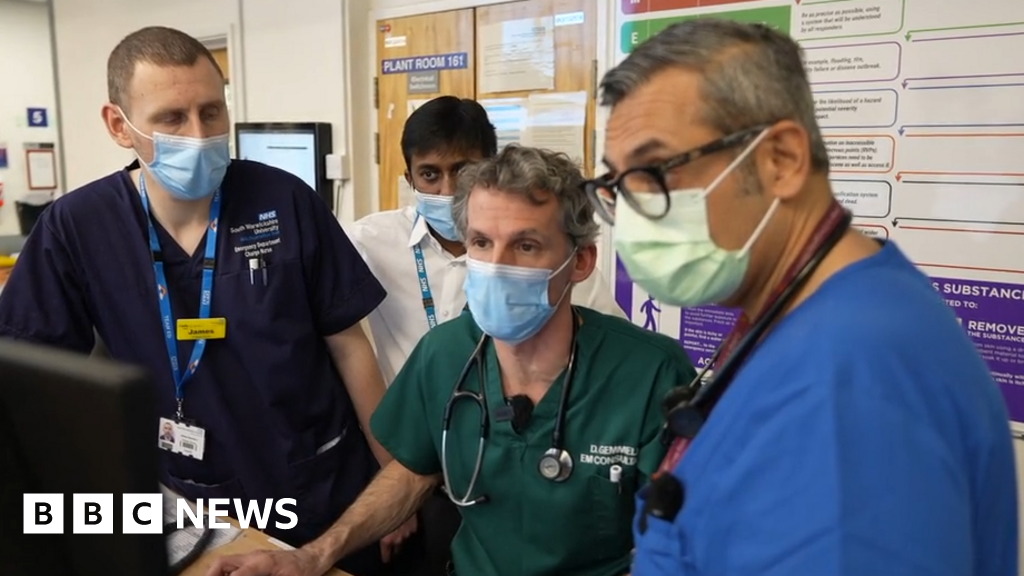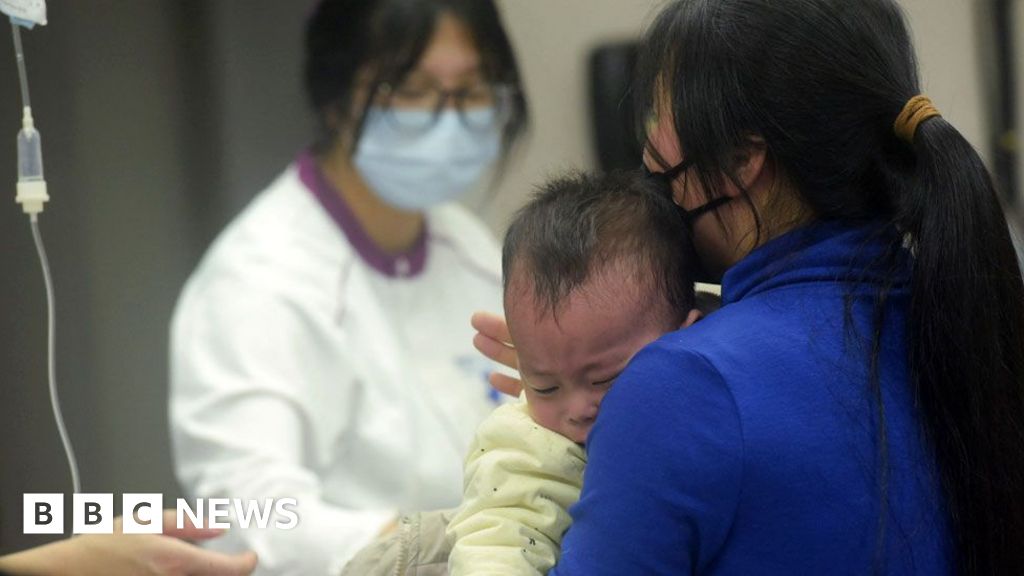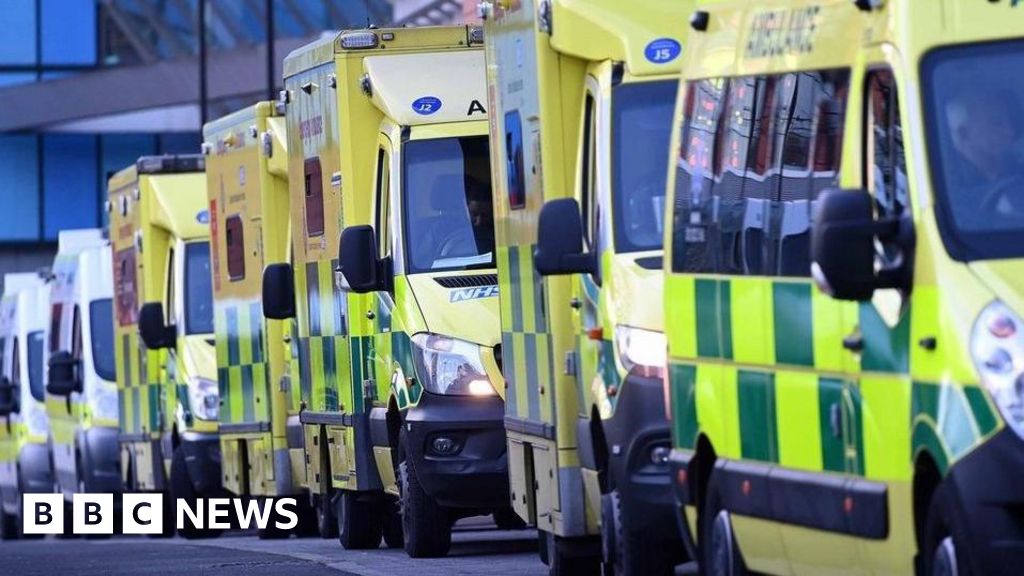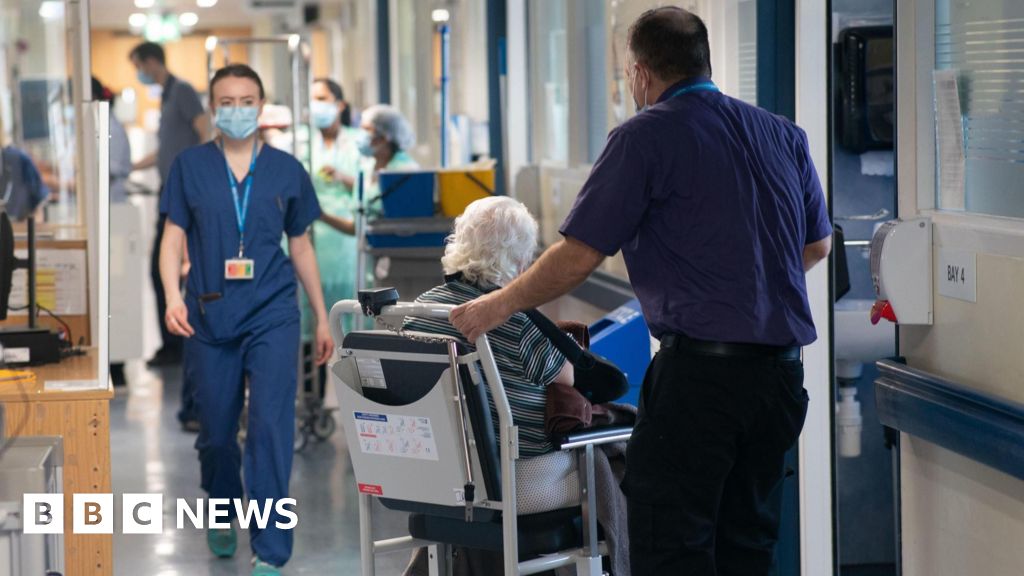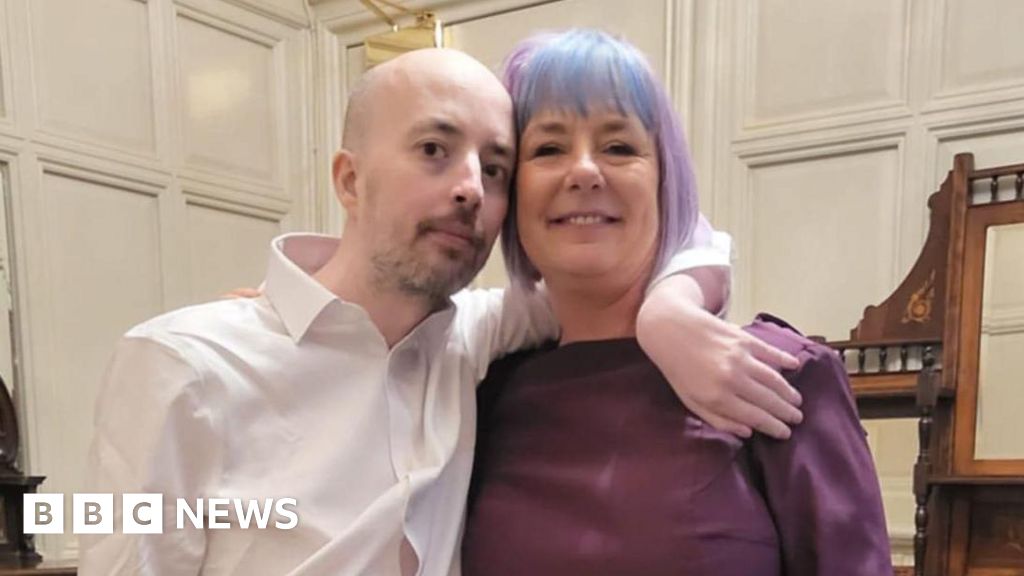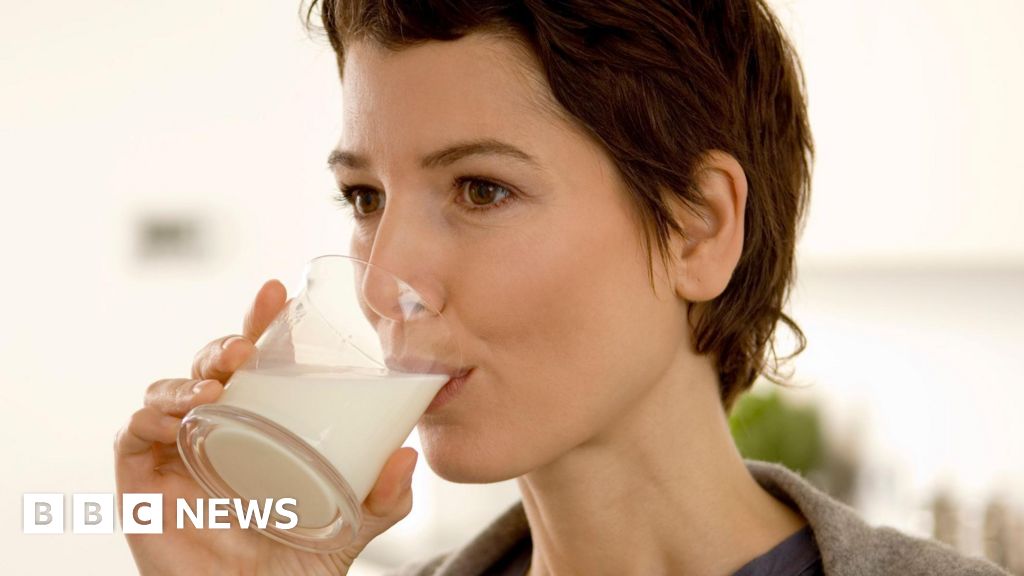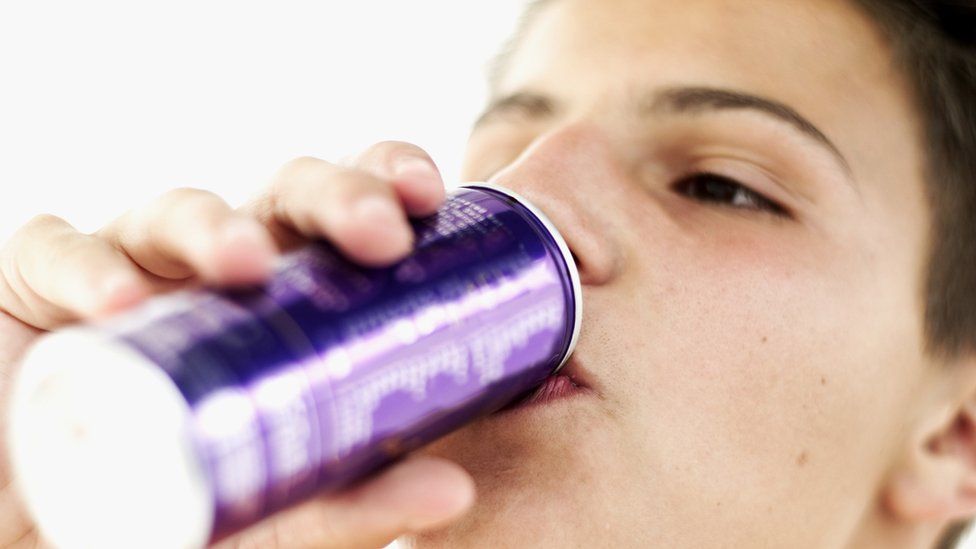 Image source, Getty Images
Image source, Getty Images
By Philippa Roxby
Health reporter
The sale of all energy drinks to young people and children in the UK should be banned, says a review of the latest evidence on their effects on health.
It highlighted links to more risks than previously found, such as anxiety, stress and suicidal thoughts.
These drinks often contain high levels of caffeine and sugar, and are sold as providing an energy boost.
Most UK supermarkets have introduced a voluntary ban on the sale of energy drinks to under-16s.
A complete ban, which would also cover smaller shops, online retailers and vending machines, was proposed in England and Scotland in 2019.
Health ministers in England said they would set out their full response in due course.
On the back of the review, 40 health-related organisations have written a letter to Health Secretary Victoria Atkins to repeat the call for sales of energy drinks to be further restricted.
"Many of these drinks contain high amounts of caffeine, as much as between 160-200mg per can in some cases, which is double the amount found in an average cup of coffee (about 80mg depending on the strength)," the letter says.
The packaging on the drinks often says they are not suitable for children, and yet they can be easily bought by under-18s from corner shops, the researchers and experts say.
Energy drinks are marketed as giving a physical and mental boost, and providing more energy than standard soft drinks.
Dr Amelia Lake, professor of public health nutrition at Teesside University, who led the review, looked at 57 recent studies of energy drinks and their impact on young people's health. More than one million children from 21 countries were included.
"The evidence is clear that energy drinks are harmful to the mental and physical health of children and young people, as well as their behaviour and education," she said.
"We need to take action now to protect them from these risks."
The research found that boys were more likely than girls to drink energy drinks.
And regular drinking was more likely to make young people use drugs, be violent and have unsafe sex.
Sleep problems, poor performance at school and an unhealthy diet were also closely related to the use of energy drinks, the review found.
Dr Lake said that although their research could not prove that energy drinks directly caused the health harms, because dietary studies are always observational, the findings were important and the best available evidence.
It is possible that energy drinks are linked to health harms because those who consume them frequently are more likely to be unhealthy in other ways - such as smoking, or drinking alcohol, for example.
Caffeine warnings
Official guidance says people should consume no more than 3mg of caffeine per kilogram of body weight.
"It's so easy for a young person to have that," says Dr Lake, with the caffeine equivalent of two espressos in a large can of energy drink.
They also have a high sugar content which can damage children's teeth and, if they already eat unhealthily, contribute to obesity.
Some countries, such as Latvia and Lithuania, have already banned the sale of energy drinks to children, but it is too soon to tell what difference the move has made. Other countries like Finland and Poland could follow suit.
England and Scotland held a consultation on ending their sale to children four years ago, and Wales consulted on the same issue in 2022.
Current rules mean that drinks which contain caffeine from whatever source at a level over 150mg per litre must state on the label: "High caffeine content. Not recommended for children or pregnant or breastfeeding women."
A spokesperson for the Department of Health and Social Care said: "We consulted on a proposal to end the sale of energy drinks to children under 16 in England, and will set out our full response in due course.
"In the meantime, many larger retailers and supermarkets have voluntarily introduced a ban on the sale of energy drinks to children under 16."
Children, and other people sensitive to caffeine, are recommended to only consume it in moderation.
William Roberts, from the Royal Society for Public Health, said the review "adds to the growing evidence that energy drinks can be harmful to children and young people's physical and mental health, both in the short and long-term".
"That's why we need the UK government to step up and deliver on its 2019 commitment to ban sales of energy drinks to under-16s."
Related Internet Links
The BBC is not responsible for the content of external sites.
 (1).png)
 11 months ago
11
11 months ago
11
